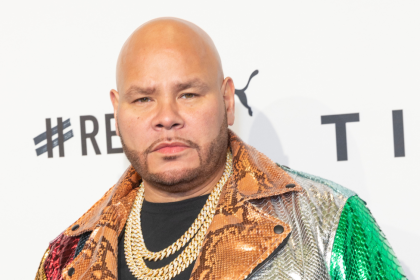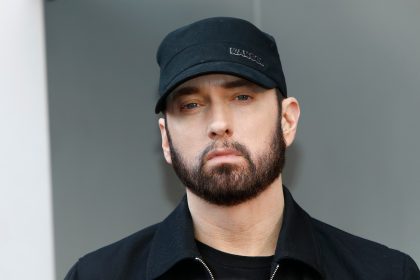Paramount Global, the entertainment conglomerate behind brands like CBS, MTV, and BET, has begun dismantling key elements of its diversity, equity, and inclusion framework amid growing pressures from the Trump administration’s policies targeting corporate DEI programs.
The media giant joins a growing list of major American corporations retreating from diversity commitments that were widely embraced following 2020’s racial justice movement, signaling a significant shift in corporate America’s approach to workplace diversity.
Industry-wide recalibration
Internal communications revealed by The New York Times indicate that Paramount’s leadership trio — co-chief executives Brian Robbins, George Cheeks and Chris McCarthy — are implementing sweeping changes to the company’s diversity practices. These adjustments include eliminating race and gender-based hiring targets, reducing demographic data collection from U.S. job applicants, and removing DEI metrics from employee compensation structures.
The executives framed these changes as necessary adaptations to align with business priorities while maintaining some commitment to workforce diversity. This careful messaging reflects the delicate balancing act many corporations now face — navigating between political pressures and their previously stated values around inclusion.
Paramount’s retreat from explicit diversity initiatives mirrors similar moves at other major corporations including Target, Walmart, Meta and Disney, all of which have scaled back DEI programs since January’s presidential transition. This pattern suggests a coordinated corporate response to perceived regulatory threats rather than isolated decisions.
Regulatory scrutiny intensifies
The timing of Paramount’s policy shift coincides with heightened scrutiny from federal regulators. FCC Chairman Brendan Carr, a vocal critic of corporate diversity initiatives, is currently reviewing Paramount’s proposed merger with Skydance Media. Carr has previously characterized DEI policies as potentially discriminatory, creating additional pressure on Paramount during a critical business transaction.
This regulatory environment has created a chilling effect across the entertainment industry, where companies increasingly view DEI commitments as potential liabilities rather than assets in the current political climate.
Communication strategy overhaul
Beyond policy changes, Paramount has undertaken a systematic purge of DEI terminology from its public-facing communications. The company’s “Global Inclusion” website has been scrubbed of explicit diversity references, and annual financial filings will no longer highlight the company’s DEI initiatives.
This represents a stark departure from just a year earlier, when Paramount prominently featured diversity and inclusion as central components of its corporate identity and employee value proposition. The linguistic shift reflects a broader strategic retreat from public DEI advocacy.
Paramount’s position as a major entertainment company makes these changes particularly significant. The company produces content consumed by millions of Americans through platforms like CBS, Paramount+ and BET. How the organization structures its internal teams inevitably influences the stories it tells and the perspectives it amplifies.
Industry analysts note that entertainment companies face unique challenges in this political environment. Their products directly shape cultural narratives, making diversity decisions more visible than in other sectors. Additionally, creative industries have traditionally attracted diverse workforces, potentially creating internal tensions as corporate policies shift away from explicit inclusion commitments.
Economic implications
Financial considerations clearly factor into Paramount’s decision-making. The company has struggled with profitability challenges in recent quarters as traditional media business models face disruption from streaming services and changing consumer habits. These economic pressures make regulatory approval for the Skydance merger particularly important, potentially incentivizing compliance with perceived political expectations.
Market analysts remain divided on whether retreating from diversity initiatives will positively impact financial performance. Some suggest reduced compliance costs and decreased litigation risk, while others point to potential damage to consumer perception and employee recruitment capabilities, particularly among younger demographics who prioritize corporate values alignment.
Entertainment industry recruitment experts highlight potential challenges in attracting creative talent without strong diversity commitments. Television and film production have increasingly emphasized diverse perspectives as competitive advantages in capturing broad audience interest. Paramount’s policy changes could hamper efforts to recruit talent who view inclusive environments as non-negotiable workplace factors.
Future outlook
Despite rolling back formal DEI programs, Paramount executives have emphasized continued commitment to “creating content for diverse audiences” and maintaining an inclusive workplace culture. This suggests the company may pursue less formalized approaches to diversity while avoiding explicit targets or measurements that could draw regulatory scrutiny.
This approach — maintaining informal diversity efforts while eliminating documented programs — may become the standard corporate response as companies attempt to navigate contradictory pressures from different stakeholders.
The entertainment industry finds itself at a crossroads regarding workplace representation. Companies like Paramount must balance shareholder demands, creative talent expectations, consumer preferences and regulatory requirements in an increasingly polarized environment.
The decisions made during this period will likely have lasting consequences for media workforce composition and the diversity of perspectives represented in American entertainment. Industry observers suggest the current retreat from formal DEI initiatives may prove temporary if political winds shift again, pointing to the cyclical nature of corporate social responsibility trends.
As Paramount and its peers navigate this complex landscape, the entertainment industry’s commitment to diverse representation will be tested in unprecedented ways, with implications extending far beyond Hollywood to shape American cultural conversations for years to come.
















